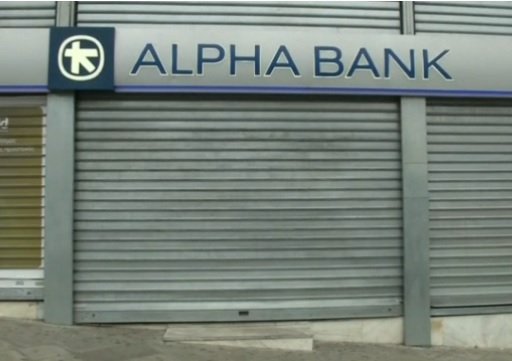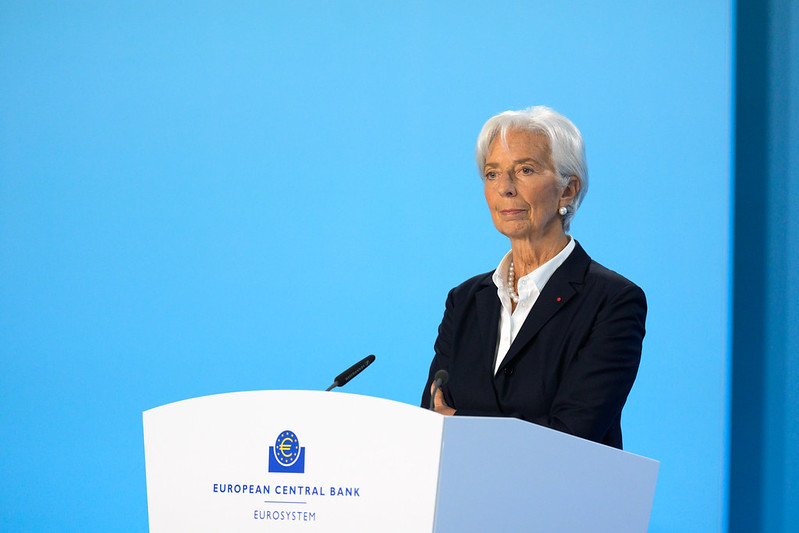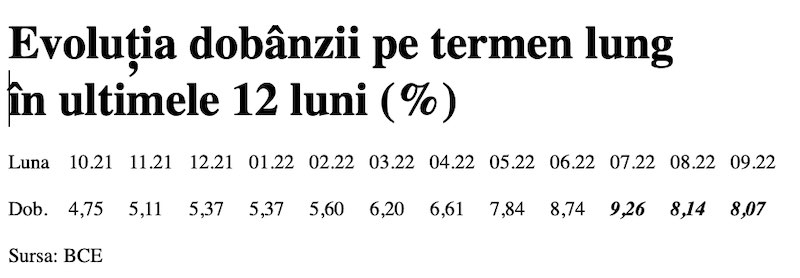ECB finds total capital shortfall of €14.4 billion for four significant Greek banks

ECB finds total capital shortfall of €14.4 billion for four significant Greek banks (ECB Banking Supervition press release):
– Comprehensive assessment reveals total capital shortfall of €4.4 billion and €14.4 billion at the four significant Greek banks under the baseline and the adverse scenarios, respectively
– Shortfalls include AQR adjustments of €9.2 billion
– Banks must submit capital plans explaining how they will cover the shortfall by 6 November
-Covering the shortfalls will improve the resilience of the banks’ balance sheets
ECB Banking Supervision conducted a comprehensive assessment of the four significant Greek banks (Alpha Bank, Eurobank, National Bank of Greece and Piraeus Bank) in line with the decision by the Euro Summit on 12 July 2015 and the Memorandum of Understanding between the European Commission, acting on behalf of the European Stability Mechanism, the Hellenic Republic and the Bank of Greece, signed on 19 August 2015.
This assessment comprised an asset quality review (AQR) and a forward-looking stress test, including a baseline and an adverse scenario, in order to assess the specific recapitalisation needs of the individual banks under the third economic adjustment programme for Greece.
The AQR resulted in aggregate adjustments of €9.2 billion to participating banks’ asset carrying values as of 30 June 2015. Also, non-performing exposure (NPE) stocks were increased by €7 billion across the four banks, with the corresponding provisions already considered in the aforementioned AQR adjustments.
In addition to adjustments made directly to current carrying values, the AQR result was also reflected in the projection of banks’ capital adequacy under hypothetical scenarios performed in the stress test.
Overall, the stress test identified a capital shortfall across the four participating banks of €4.4 billion under the baseline scenario and €14.4 billion under the adverse scenario, including AQR adjustments, after comparing the projected solvency ratios against the thresholds defined for the exercise.
The four banks will have to submit capital plans to ECB Banking Supervision explaining how they intend to cover their shortfalls by 6 November. This will start a recapitalisation process under the economic adjustment programme that must conclude before the end of the year.
Covering the shortfalls by raising capital will result in the creation of prudential buffers at the four Greek banks, which will improve the resilience of their balance sheets and their capacity to withstand potential adverse macroeconomic shocks.
[1]
To ensure consistency, the 2015 AQR was in line with the methodology of the 2014 comprehensive assessment; thorough quality assurance of the AQR results was performed by ECB Banking Supervision on the local and central levels.
Significant AQR adjustments have been identified in this exercise; despite the effort made by banks to record in their accounts an important part of the AQR findings from 2014. These were primarily driven by the deterioration in the macroeconomic environment in Greece, which led to higher NPE volumes as well as lower collateral values and cash flow valuations. Moreover, the standardisation of the definition of key metrics across the EU resulted in further NPE and impairment recognition in the AQR.
For example, the full implementation of the European Banking Authority’s implementing technical standards on NPE meant that forborne exposures could be better identified and tested for impairment. Finally, the disallowance of tax offsets within the AQR has amplified the adjustments of the AQR 2015 vis-à-vis 2014.
The stress test was led centrally by the ECB and was based on data provided by the participating banks, which was quality assured by a central team. The methodology applied was largely based on the 2014 stress test performed by the European Banking Authority and the ECB.
It consisted of both a baseline and an adverse scenario, applied for the period from 30 June 2015 to 31 December 2017. Greek banks were required to maintain a minimum Common Equity Tier 1 (CET1) ratio of 9.5% and 8% under the baseline scenario and adverse scenario, respectively.
Where a bank has a capital shortfall in more than one part of the exercise, the maximum amount determines the final capital shortfall that needs to be covered. The baseline scenario was defined as part of the third economic adjustment programme for Greece and the adverse scenario was developed by the ECB in consultation with the EU Commission and the International Monetary Fund.
The assumptions of GDP growth for both scenarios are outlined in the table below:
[2]
Detailed results and information on the outcome of the exercise can be found in the disclosure templates and the aggregate report at the ECB Banking Supervision website.
Comentarii
Adauga un comentariu
Alte stiri din categoria: Noutati BCE
Acord intre BCE si BNR pentru supravegherea bancilor
• BCE semnează Memorandumul de înțelegere cu autoritățile naționale competente din șase state membre ale UE care nu participă la supravegherea bancară europeană. • Țările care fac obiectul Memorandumului sunt Cehia, Danemarca, Polonia, România, Suedia și Ungaria.• Memorandumul consolidează cooperarea în materie de supraveghere prin partajarea de informații și promovează o cultură comună în domeniul supravegherii.Banca Centrală Europeană (BCE) a încheiat un Memorandum de înțelegere multilateral cu autoritățile naționale competente (ANC) ale celor șase state membre ale UE care nu participă la supravegherea bancară europeană, conform unui comunicat de presa, in care se adauga:Memorandumul va asigura un cadru prin intermediul căruia Cehia, Danemarca, Polonia, România, Suedia și Ungaria vor face schimb de informații și își vor coordona activitățile de supraveghere.Acordul urmărește să intensifice în continuare cooperarea în materie de supraveghere la nivel european, pe fundamentul... detalii
Banca Centrala Europeana (BCE) explica de ce a majorat dobanda la 2%
Banca Centrala Europeana (BCE) explica de ce a majorat dobanda la 2%, in cadrul unei conferinte de presa sustinute de Christine Lagarde, președinta BCE, si Luis de Guindos, vicepreședintele BCE.Iata... detalii
BCE creste dobanda la 2%, dupa ce inflatia a ajuns la 10%
Banca Centrala Europeana (BCE) a majorat dobanda de referinta pentru tarile din zona euro cu 0,75 puncte, la 2% pe an, din cauza cresterii substantiale a inflatiei, ajunsa la aproape 10% in septembrie, cu mult peste tinta BCE, de doar 2%.In aceste conditii, BCE a anuntat ca va continua sa majoreze dobanda de politica monetara.De asemenea, BCE a luat masuri pentru a reduce nivelul imprumuturilor acordate bancilor in perioada pandemiei coronavirusului, prin majorarea dobanzii aferente acestor facilitati, denumite operațiuni țintite de refinanțare pe termen mai lung (OTRTL).Comunicatul BCEConsiliul guvernatorilor a decis astăzi să majoreze cu 75 puncte de bază cele trei rate ale dobânzilor reprezentative ale BCE. Prin această majorare substanțială a ratelor dobânzilor pentru a treia oară consecutiv, Consiliul guvernatorilor a înregistrat progrese considerabile în procesul de retragere a măsurilor acomodative de politică monetară. Consiliul... detalii
Dobânda pe termen lung a continuat să scadă in septembrie 2022. Ecartul față de Polonia și Cehia, redus semnificativ
Dobânda pe termen lung pentru România a scăzut în septembrie 2022 la valoarea medie de 8,07%, potrivit datelor publicate de Banca Centrală Europeană. Acest indicator, cu referința la un termen... detalii
 Rata dobanzii pe termen lung pentru Romania, in crestere la 2,96%
Rata dobanzii pe termen lung pentru Romania, in crestere la 2,96%
 BCE recomanda bancilor sa nu plateasca dividende
BCE recomanda bancilor sa nu plateasca dividende
 Modul de functionare a relaxarii cantitative (quantitative easing – QE)
Modul de functionare a relaxarii cantitative (quantitative easing – QE)
 Dobanda la euro nu va creste pana in iunie 2020
Dobanda la euro nu va creste pana in iunie 2020
 BCE trebuie sa fie consultata inainte de adoptarea de legi care afecteaza bancile nationale
BCE trebuie sa fie consultata inainte de adoptarea de legi care afecteaza bancile nationale
 BCE a publicat avizul privind taxa bancara
BCE a publicat avizul privind taxa bancara
 BCE va mentine la 0% dobanda de referinta pentru euro cel putin pana la finalul lui 2019
BCE va mentine la 0% dobanda de referinta pentru euro cel putin pana la finalul lui 2019
 ECB: Insights into the digital transformation of the retail payments ecosystem
ECB: Insights into the digital transformation of the retail payments ecosystem
 ECB introductory statement on Governing Council decisions
ECB introductory statement on Governing Council decisions
 Speech by Mario Draghi, President of the ECB: Sustaining openness in a dynamic global economy
Vezi toate stirile
Speech by Mario Draghi, President of the ECB: Sustaining openness in a dynamic global economy
Vezi toate stirile
Criza COVID-19
- In majoritatea unitatilor BRD se poate intra fara certificat verde
- La BCR se poate intra fara certificat verde
- Firmele, obligate sa dea zile libere parintilor care stau cu copiii in timpul pandemiei de coronavirus
- CEC Bank: accesul in banca se face fara certificat verde
- Cum se amana ratele la creditele Garanti BBVA
Topuri Banci
- Topul bancilor dupa active si cota de piata in perioada 2022-2015
- Topul bancilor cu cele mai mici dobanzi la creditele de nevoi personale
- Topul bancilor la active in 2019
- Topul celor mai mari banci din Romania dupa valoarea activelor in 2018
- Topul bancilor dupa active in 2017
Asociatia Romana a Bancilor (ARB)
- Băncile din România nu au majorat comisioanele aferente operațiunilor în numerar
- Concurs de educatie financiara pentru elevi, cu premii in bani
- Creditele acordate de banci au crescut cu 14% in 2022
- Romanii stiu educatie financiara de nota 7
- Gradul de incluziune financiara in Romania a ajuns la aproape 70%
ROBOR
- ROBOR: ce este, cum se calculeaza, ce il influenteaza, explicat de Asociatia Pietelor Financiare
- ROBOR a scazut la 1,59%, dupa ce BNR a redus dobanda la 1,25%
- Dobanzile variabile la creditele noi in lei nu scad, pentru ca IRCC ramane aproape neschimbat, la 2,4%, desi ROBOR s-a micsorat cu un punct, la 2,2%
- IRCC, indicele de dobanda pentru creditele in lei ale persoanelor fizice, a scazut la 1,75%, dar nu va avea efecte imediate pe piata creditarii
- Istoricul ROBOR la 3 luni, in perioada 01.08.1995 - 31.12.2019
Taxa bancara
- Normele metodologice pentru aplicarea taxei bancare, publicate de Ministerul Finantelor
- Noul ROBOR se va aplica automat la creditele noi si prin refinantare la cele in derulare
- Taxa bancara ar putea fi redusa de la 1,2% la 0,4% la bancile mari si 0,2% la cele mici, insa bancherii avertizeaza ca indiferent de nivelul acesteia, intermedierea financiara va scadea iar dobanzile vor creste
- Raiffeisen anunta ca activitatea bancii a incetinit substantial din cauza taxei bancare; strategia va fi reevaluata, nu vor mai fi acordate credite cu dobanzi mici
- Tariceanu anunta un acord de principiu privind taxa bancara: ROBOR-ul ar putea fi inlocuit cu marja de dobanda a bancilor
Statistici BNR
- Deficitul contului curent, aproape 20 miliarde euro după primele nouă luni
- Deficitul contului curent, aproape 18 miliarde euro după primele opt luni
- Deficitul contului curent, peste 9 miliarde euro pe primele cinci luni
- Deficitul contului curent, 6,6 miliarde euro după prima treime a anului
- Deficitul contului curent pe T1, aproape 4 miliarde euro
Legislatie
- Legea nr. 311/2015 privind schemele de garantare a depozitelor şi Fondul de garantare a depozitelor bancare
- Rambursarea anticipata a unui credit, conform OUG 50/2010
- OUG nr.21 din 1992 privind protectia consumatorului, actualizata
- Legea nr. 190 din 1999 privind creditul ipotecar pentru investiții imobiliare
- Reguli privind stabilirea ratelor de referinţă ROBID şi ROBOR
Lege plafonare dobanzi credite
- Care este dobanda maxima la un credit IFN?
- BNR propune Parlamentului plafonarea dobanzilor la creditele bancilor intre 1,5 si 4 ori peste DAE medie, in functie de tipul creditului; in cazul IFN-urilor, plafonarea dobanzilor nu se justifica
- Legile privind plafonarea dobanzilor la credite si a datoriilor preluate de firmele de recuperare se discuta in Parlament (actualizat)
- Legea privind plafonarea dobanzilor la credite nu a fost inclusa pe ordinea de zi a comisiilor din Camera Deputatilor
- Senatorul Zamfir, despre plafonarea dobanzilor la credite: numai bou-i consecvent!
Anunturi banci
- Cate reclamatii primeste Intesa Sanpaolo Bank si cum le gestioneaza
- Platile instant, posibile la 13 banci
- Aplicatia CEC app va functiona doar pe telefoane cu Android minim 8 sau iOS minim 12
- Bancile comunica automat cu ANAF situatia popririlor
- BRD bate recordul la credite de consum, in ciuda dobanzilor mari, si obtine un profit ridicat
Analize economice
- Inflația anuală, peste pragul de 5% în 2024
- Deficit bugetar de -7,12% din PIB, după 11 luni din 2024
- România, „lanterna roșie†a cheltuielilor pentru cercetare-dezvoltare în UE
- Deficitul contului curent, peste 24 miliarde euro după primele zece luni
- Deficit comercial record în octombrie 2024
Ministerul Finantelor
- Datoria publică, 51,4% din PIB la mijlocul anului
- Deficit bugetar de 3,6% din PIB după prima jumătate a anului
- Deficit bugetar de 3,4% din PIB după primele cinci luni ale anului
- Deficit bugetar îngrijorător după prima treime a anului
- Deficitul bugetar, -2,06% din PIB pe primul trimestru al anului
Biroul de Credit
- FUNDAMENTAREA LEGALITATII PRELUCRARII DATELOR PERSONALE IN SISTEMUL BIROULUI DE CREDIT
- BCR: prelucrarea datelor personale la Biroul de Credit
- Care banci si IFN-uri raporteaza clientii la Biroul de Credit
- Ce trebuie sa stim despre Biroul de Credit
- Care este procedura BCR de raportare a clientilor la Biroul de Credit
Procese
- ANPC pierde un proces cu Intesa si ARB privind modul de calcul al ratelor la credite
- Un client Credius obtine in justitie anularea creditului, din cauza dobanzii prea mari
- Hotararea judecatoriei prin care Aedificium, fosta Raiffeisen Banca pentru Locuinte, si statul sunt obligati sa achite unui client prima de stat
- Decizia Curtii de Apel Bucuresti in procesul dintre Raiffeisen Banca pentru Locuinte si Curtea de Conturi
- Vodafone, obligata de judecatori sa despagubeasca un abonat caruia a refuzat sa-i repare un telefon stricat sau sa-i dea banii inapoi (decizia instantei)
Stiri economice
- Deficitul comercial a depașit pragul de 30 miliarde euro în noiembrie 2024
- Inflația anuală a crescut la 5,11%, prin efect de bază
- Datoria publică, 54,4% din PIB la finele lunii septembrie 2024
- România, tot prima dar în trendul UE la inflația anuală
- Datoria publică, 52,7% din PIB la finele lunii august 2024
Statistici
- România, pe locul trei în UE la creșterea costului muncii în T2 2024
- Cheltuielile cu pensiile - România, pe locul 19 în UE ca pondere în PIB
- Dobanda din Cehia a crescut cu 7 puncte intr-un singur an
- Care este valoarea salariului minim brut si net pe economie in 2024?
- Cat va fi salariul brut si net in Romania in 2024, 2025, 2026 si 2027, conform prognozei oficiale
FNGCIMM
- Programul IMM Invest continua si in 2021
- Garantiile de stat pentru credite acordate de FNGCIMM au crescut cu 185% in 2020
- Programul IMM invest se prelungeste pana in 30 iunie 2021
- Firmele pot obtine credite bancare garantate si subventionate de stat, pe baza facturilor (factoring), prin programul IMM Factor
- Programul IMM Leasing va fi operational in perioada urmatoare, anunta FNGCIMM
Calculator de credite
- ROBOR la 3 luni a scazut cu aproape un punct, dupa masurile luate de BNR; cu cat se reduce rata la credite?
- In ce mall din sectorul 4 pot face o simulare pentru o refinantare?
Noutati BCE
- Acord intre BCE si BNR pentru supravegherea bancilor
- Banca Centrala Europeana (BCE) explica de ce a majorat dobanda la 2%
- BCE creste dobanda la 2%, dupa ce inflatia a ajuns la 10%
- Dobânda pe termen lung a continuat să scadă in septembrie 2022. Ecartul față de Polonia și Cehia, redus semnificativ
- Rata dobanzii pe termen lung pentru Romania, in crestere la 2,96%
Noutati EBA
- Bancile romanesti detin cele mai multe titluri de stat din Europa
- Guidelines on legislative and non-legislative moratoria on loan repayments applied in the light of the COVID-19 crisis
- The EBA reactivates its Guidelines on legislative and non-legislative moratoria
- EBA publishes 2018 EU-wide stress test results
- EBA launches 2018 EU-wide transparency exercise
Noutati FGDB
- Banii din banci sunt garantati, anunta FGDB
- Depozitele bancare garantate de FGDB au crescut cu 13 miliarde lei
- Depozitele bancare garantate de FGDB reprezinta doua treimi din totalul depozitelor din bancile romanesti
- Peste 80% din depozitele bancare sunt garantate
- Depozitele bancare nu intra in campania electorala
CSALB
- Sistemul bancar romanesc este deosebit de bine pregatit pentru orice fel de socuri
- La CSALB poti castiga un litigiu cu banca pe care l-ai pierde in instanta
- Negocierile dintre banci si clienti la CSALB, in crestere cu 30%
- Sondaj: dobanda fixa la credite, considerata mai buna decat cea variabila, desi este mai mare
- CSALB: Romanii cu credite caută soluții pentru reducerea ratelor. Cum raspund bancile
First Bank
- Ce trebuie sa faca cei care au asigurare la credit emisa de Euroins
- First Bank este reprezentanta Eurobank in Romania: ce se intampla cu creditele Bancpost?
- Clientii First Bank pot face plati prin Google Pay
- First Bank anunta rezultatele financiare din prima jumatate a anului 2021
- First Bank are o noua aplicatie de mobile banking
Noutati FMI
- FMI: criza COVID-19 se transforma in criza economica si financiara in 2020, suntem pregatiti cu 1 trilion (o mie de miliarde) de dolari, pentru a ajuta tarile in dificultate; prioritatea sunt ajutoarele financiare pentru familiile si firmele vulnerabile
- FMI cere BNR sa intareasca politica monetara iar Guvernului sa modifice legea pensiilor
- FMI: majorarea salariilor din sectorul public si legea pensiilor ar trebui reevaluate
- IMF statement of the 2018 Article IV Mission to Romania
- Jaewoo Lee, new IMF mission chief for Romania and Bulgaria
Noutati BERD
- Creditele neperformante (npl) - statistici BERD
- BERD este ingrijorata de investigatia autoritatilor din Republica Moldova la Victoria Bank, subsidiara Bancii Transilvania
- BERD dezvaluie cat a platit pe actiunile Piraeus Bank
- ING Bank si BERD finanteaza parcul logistic CTPark Bucharest
- EBRD hails Moldova banking breakthrough
Noutati Federal Reserve
- Federal Reserve anunta noi masuri extinse pentru combaterea crizei COVID-19, care produce pagube "imense" in Statele Unite si in lume
- Federal Reserve urca dobanda la 2,25%
- Federal Reserve decided to maintain the target range for the federal funds rate at 1-1/2 to 1-3/4 percent
- Federal Reserve majoreaza dobanda de referinta pentru dolar la 1,5% - 1,75%
- Federal Reserve issues FOMC statement
Noutati BEI
- BEI a redus cu 31% sprijinul acordat Romaniei in 2018
- Romania implements SME Initiative: EUR 580 m for Romanian businesses
- European Investment Bank (EIB) is lending EUR 20 million to Agricover Credit IFN
Mobile banking
- Comisioanele BRD pentru MyBRD Mobile, MyBRD Net, My BRD SMS
- Termeni si conditii contractuale ale serviciului You BRD
- Recomandari de securitate ale BRD pentru utilizatorii de internet/mobile banking
- CEC Bank - Ghid utilizare token sub forma de card bancar
- Cinci banci permit platile cu telefonul mobil prin Google Pay
Noutati Comisia Europeana
- Avertismentul Comitetului European pentru risc sistemic (CERS) privind vulnerabilitățile din sistemul financiar al Uniunii
- Cele mai mici preturi din Europa sunt in Romania
- State aid: Commission refers Romania to Court for failure to recover illegal aid worth up to €92 million
- Comisia Europeana publica raportul privind progresele inregistrate de Romania in cadrul mecanismului de cooperare si de verificare (MCV)
- Infringements: Commission refers Greece, Ireland and Romania to the Court of Justice for not implementing anti-money laundering rules
Noutati BVB
- BET AeRO, primul indice pentru piata AeRO, la BVB
- Laptaria cu Caimac s-a listat pe piata AeRO a BVB
- Banca Transilvania plateste un dividend brut pe actiune de 0,17 lei din profitul pe 2018
- Obligatiunile Bancii Transilvania se tranzactioneaza la Bursa de Valori Bucuresti
- Obligatiunile Good Pople SA (FRU21) au debutat pe piata AeRO
Institutul National de Statistica
- Comerțul cu amănuntul - în creștere cu 8% pe primele 10 luni
- Deficitul balanței comerciale la 9 luni, cu 15% mai mare față de aceeași perioadă a anului trecut
- Producția industrială, în scădere semnificativă
- Pensia reală, în creștere cu 8,7% pe luna august 2024
- Avansul PIB pe T1 2024, majorat la +0,5%
Informatii utile asigurari
- Data de la care FGA face plati pentru asigurarile RCA Euroins: 17 mai 2023
- Asigurarea împotriva dezastrelor, valabilă și in caz de faliment
- Asiguratii nu au nevoie de documente de confirmare a cutremurului
- Cum functioneaza o asigurare de viata Metropolitan pentru un credit la Banca Transilvania?
- Care sunt documente necesare pentru dosarul de dauna la Cardif?
ING Bank
- La ING se vor putea face plati instant din decembrie 2022
- Cum evitam tentativele de frauda online?
- Clientii ING Bank trebuie sa-si actualizeze aplicatia Home Bank pana in 20 martie
- Obligatiunile Rockcastle, cel mai mare proprietar de centre comerciale din Europa Centrala si de Est, intermediata de ING Bank
- ING Bank transforma departamentul de responsabilitate sociala intr-unul de sustenabilitate









